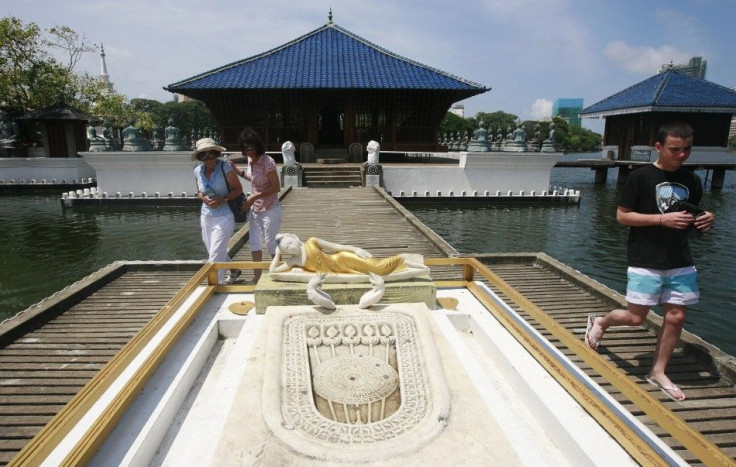Sri Lanka To Monitor Tourists ‘For Their Own Safety’

Nearly every travel publication proclaimed 2013 the year Sri Lanka would finally break free from its war-ravaged image and come into its own as the tourist Mecca Mother Nature intended it to be. While it has done that, new monitoring techniques implemented by Sri Lankan police threaten to hamper the nation’s fragile reputation.
A nearly three-decades-long civil war that claimed the lives of as many as 100,000 people, according to U.N. figures, came to a bloody end four years ago at Mullaitivu, along the tear-shaped island’s northeastern shores. Now, tourists have replaced soldiers at the idyllic beach towns that dot the coast down to Trincomalee.
Sri Lanka has always been wary of foreigners traveling to the once-forbidden far north. Indeed, foreigners still must sign in with their passports at a military checkpoint to enter the heartland of the former Tamil Tiger separatists, Jaffna.
Now, Sri Lankan police say they will monitor tourists’ whereabouts in the entire country “for their own safety,” citing an obscure 1886 ordinance that has been largely ignored for decades.
"Tourists are important to our economy,” police spokesman, Buddhika Siriwardena, told Agence France-Presse. “This is to ensure their own safety. This scheme will ensure officers will have details of tourists in their areas to protect them."
The police have reportedly asked hotels and guesthouses across the nation to inform local officers of the passport numbers and visa details of all foreign visitors via weekly reports as part of a new "security" plan for tourists.
Violent crimes against tourists are relatively rare in Sri Lanka, though the U.S. Department of State warns of an increasing number of sexual assaults directed at foreigners.
A British national was killed in a gang attack on Christmas Day 2011 at the coastal resort town of Tangalle in the island’s south, while two Europeans were beaten in central Sri Lanka last month. Local police argue that better monitoring will help prevent such crimes from occurring.
The nation was placed under a spotlight after visitor numbers in 2012 nearly doubled averages in the final years of the civil war. Yet, as Sri Lanka opens up to foreign visitors, many have been highly critical of the government’s refusal to investigate alleged war crimes. The government has also come under criticism for massive land grabs in the name of tourism.
The Sri Lanka Campaign for Peace and Justice said it’s concerned about the army’s recent push in the north, where the military is involved in several hotels including Dutch Bay Resort and wildlife sanctuaries such as Mullaitivu, which were created on land that the group believes was acquired without proper consultation with local residents.
The Campaign for Peace called in November on a collection of international travel companies including Thomas Cook, STA Travel and Virgin Holidays, as well as websites like Kayak, Expedia and Booking.com, to stop supporting businesses “of concern” that may line the pockets of those who it believes are committing human rights abuses. In turn, several of these companies reviewed their offerings.
© Copyright IBTimes 2024. All rights reserved.






















